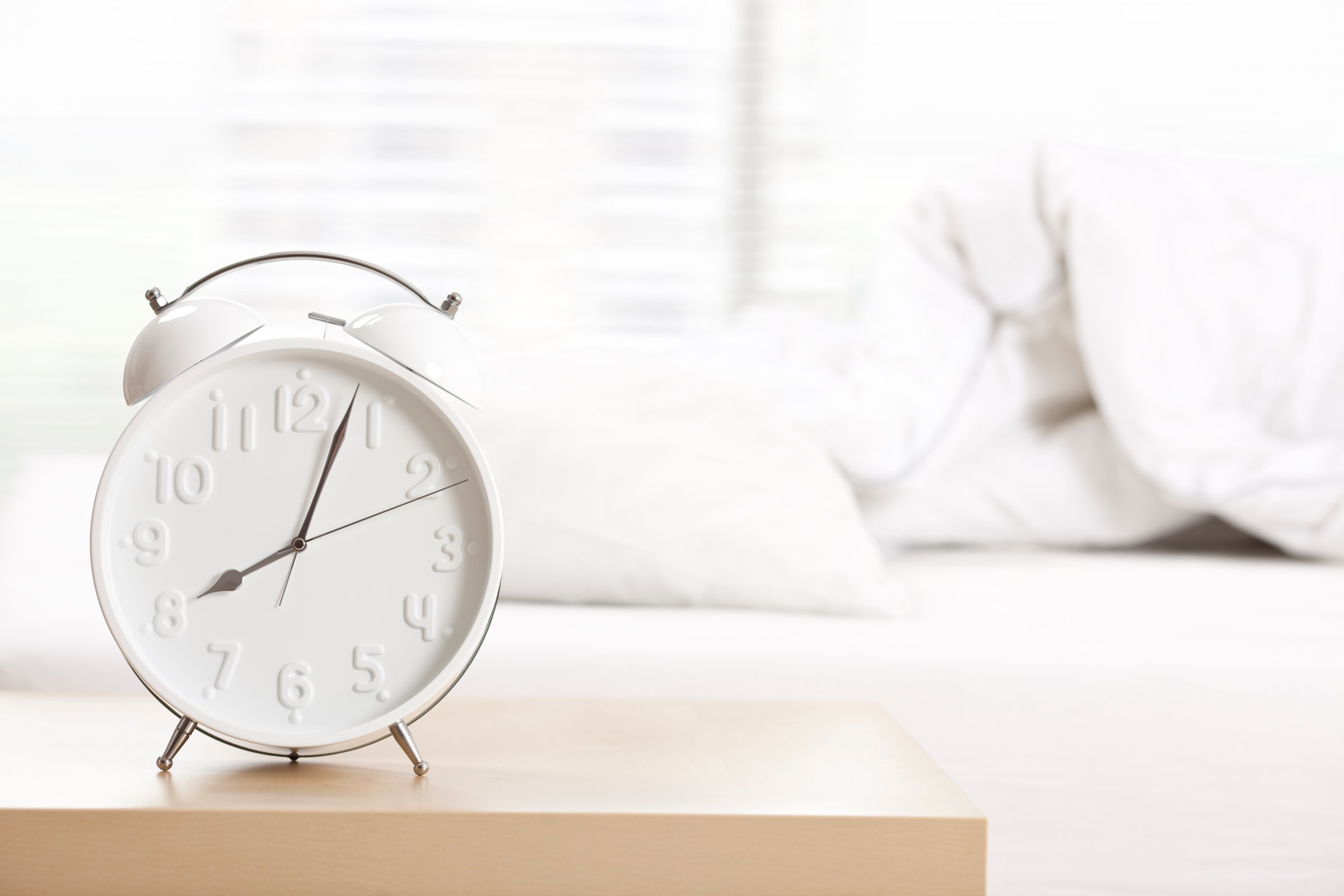
About a third of Americans don’t get enough sleep. But there’s a small group of people actively trying to spend less time in bed, not more: polyphasic sleepers. Part productivity hack, part science experiment, polyphasic sleep is rumored to have fueled great minds, including those of Leonardo da Vinci and Nikola Tesla. The odd sleeping habit has now caught on among Silicon Valley types eager to milk as many productive hours from the day as possible, and has spurred books, an active Reddit community and even a Polyphasic Sleep Society.
Here’s what to know about the unorthodox sleep practice.
What is polyphasic sleep?
Most people are monophasic sleepers, meaning they get all of their rest in one long chunk, typically at night. Polyphasic sleepers, meanwhile, snooze in short bursts throughout the day instead of sleeping all night. There are many different polyphasic sleep schedules, according to the Polyphasic Society, but one of the most popular involves a longer “core” sleep anywhere from 90 minutes to six hours, supplemented by 20-minute naps. The length of the core sleep and the number of naps varies, but people on this schedule spend a total of three to seven hours asleep. Another schedule consists only of 20-minute naps spaced throughout the day, totaling two to three hours of shut-eye per day.
Proponents say that spacing out slumber can maximize the amount of time you spend in rapid eye movement (REM) sleep and slow wave sleep, since the body defaults to these stages when it’s tired. Dreaming, memory storage and mood regulation happen during REM sleep, while slow wave is the deepest, most restorative stage of sleep. Many polyphasic sleepers believe the other phases of the sleep cycle are unnecessary, and that by eliminating them, they can spend more productive hours awake.
Should I try polyphasic sleep?
In a word: “No,” says Dr. Alon Avidan, the director of the University of California Los Angeles Sleep Disorders Center. “There is very little data—none whatsoever in the medical literature—of carefully designed clinical studies demonstrating that polyphasic sleep has any advantage in human sleep medicine,” Avidan says. “If individuals who sleep in a fragmented fashion end up sleeping less overall, that has health consequences,” including cognitive impairment, memory problems and a higher risk of accidents, he says. People who don’t get at least seven hours of sleep each day may even be at higher risk for chronic conditions such as diabetes and obesity, Avidan says, because research has shown that sleep deprivation disrupts hormone levels and spikes your blood sugar and appetite.
Even if you can game the system and slip right into REM sleep, doing so isn’t natural, and the other cycles of sleep likely do have value, Avidan says. “When you start realigning and re-shifting the percentage of sleep stages throughout the normal sleep period, you end up shifting a lot of different physiologic functions that are very tied to sleep stages,” he says. That could result in consequences to your endocrine system and metabolic function.
What if I don’t need much sleep anyway?
It’s true: Some people really can function well with less than the recommended eight hours of sleep per night, Avidan says, but they’re the exception to the rule. For most people, sleep deprivation—whether it’s from polyphasic sleep or other reasons—will just continue to pile up, eventually taking a toll on health.
“Sleep is not like a bank account. You can’t sleep for one hour, then two hours, and combine it with another four hours and say it’s seven hours,” Avidan says. “With sleep debt, you’re borrowing sleep at a very high interest rate. For one hour of sleep, it takes a full [night] of normal sleep recovery to make up the difference.”
What are the origins of polyphasic sleep?
Some literature and research suggests that humans are naturally polyphasic sleepers. Avidan agrees that plenty of historical evidence points to biphasic sleep—going to bed early, rising early, then napping for a prolonged period later in the day—but says he suspects the roots are more environmental than biological. “It was probably just related to environmental needs—lack of air conditioning, and when it would be most comfortable to work in a hunter-gathering environment or agricultural environment,” he says.
And while babies and some animals naturally sleep in phases, Avidan says he’s skeptical that adult humans are meant to function that way, pointing to night shift workers as evidence. Studies have shown that people who work the night shift tend to have more health issues, such as heart problems and shorter lifespans, than people who work during the day. “There are circadian genes that express certain signals to release melatonin when darkness ensues, and that’s a signal for sleep,” Avidan says. “That appears at around 9 p.m.”—a prelude to sleep within the next two hours, and a wake time between 6-8 a.m.
More Must-Reads from TIME
- Cybersecurity Experts Are Sounding the Alarm on DOGE
- Meet the 2025 Women of the Year
- The Harsh Truth About Disability Inclusion
- Why Do More Young Adults Have Cancer?
- Colman Domingo Leads With Radical Love
- How to Get Better at Doing Things Alone
- Michelle Zauner Stares Down the Darkness
Write to Jamie Ducharme at jamie.ducharme@time.com